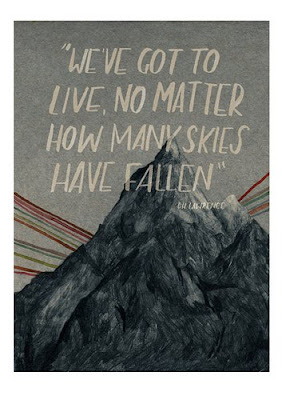So it was of great relief to me that day, after I had shared my mistake made during my 30-hour call with my Head of Department, to hear him say that though it was an error on my part, it was not the cause of the death that fateful morning.
Two nights ago, I was on-call again, working my 30-hour shift from 7am on Friday morning to 1pm on Saturday afternoon without sleep in between.
Two things happened that night, which, together with the unfortunate death which had happened during my last call, made me learn an important truth.
They were unexpected incidents, both which made me feel awful and guilty and wretched. Yet, through that sense of wretchedness, the lesson that my Head of Department had imparted to me seemed to be reinforced: Wai Jia, rememeber to look at the big picture. We are doctors, but we are human too.
Not that this gives us an excuse to shirk our responsibilities and justify our errors, because one mistake is a mistake too many. And certainly, one ought never to repeat an error again. But it reminds me of the continual need to forgive myself because God did and does, and because His love covers a multitude of sins.
A junior doctor is often called in the middle of the night for an unpleasant procedure called Bladder catherization. (Please refrain from reading the following if you are gastronomically sensitive.) It involves using a sterile technique to thread a tube through the genitalia of a male patient (often a very elderly and miserable gentleman) in order to drain the retained urine from his bladder. Very often, this can amount to anywhere from 500ml to a litre of foul-smelling urine that has been trapped in his abdomen for a long time. Because of the anatomy of the male patient and the danger of potentially threading a false tract wrongly and resulting in a ruptured urinary canal (urethra), only doctors, and not nurses, are allowed to catheterize male patients.
I had done this many, many times before.
So when I saw fresh blood spilling out at 12 midnight, with plenty of dark clots, and received another phonecall from my nurse saying the patient re-bled again at 3am in the morning, I panicked. I not only panicked, I immediately blamed myself for causing the patient harm, and made a referral to the Urology specialist. Oh how wretched I felt!
In the morning, I called the family to update them on what had happened. The Urology specialist came to review the patient, and informed me that he had an enlarged prostate, which made both catherization and his ability to urinate properly difficult. Not only was the family not upset about the ordeal, they were so very thankful for the referral and continued to thank me profusely. The patient himself was unresentful, smiling reassuredly at me for doing my best for him. It was then that I realized, that it wasn’t a mistake, but simply, a complication that had occured from a procedure. Every procedure comes with its own risks.
On the same morning, I got a call from a doctor from another ward telling me off for a drug I had prescribed for a patient in his ward while I was on-call, and he was not happy about it. I accepted it, and learnt a very important lesson.
Over the week, I learnt, that my error of not replacing the ions fast enough for my previous patient was not the reason for her death; I learnt, that blood urinary catherizations happen even to the most careful of junior doctors-they are a well-known complication of this delicate procedure; I learnt, that unless one has zero contact with patients, one will surely be responsible for some unpleasant outcomes some of the time- be it a failed lumbar puncture, multiple attempts at blood taking, or prescribing a drug which resulted in unexpected side effects. In this line of work, one must accept, that with every procedure to help, comes its associated risks, complications and side effects as well.
It’s an unpleasant reality to know, that poor outcomes cannot be avoided, in a line that aims to provide only the best, and absolute healing and comfort. But it is an essential point to note to avoid burnout.
And it helped me to see with clarity, that so great is the grace and really, the love of God, that He loves us and forgives us, and helps us to be better physicians and healers every day. After all, only He, is the True Physician and Healer of our souls.
We do our best.
so that Christ may dwell in your hearts through faith.
may have power,
to grasp how wide and long and high and deep is the love of Christ,

from here

As long as you learn from your mistakes and don't repeat them